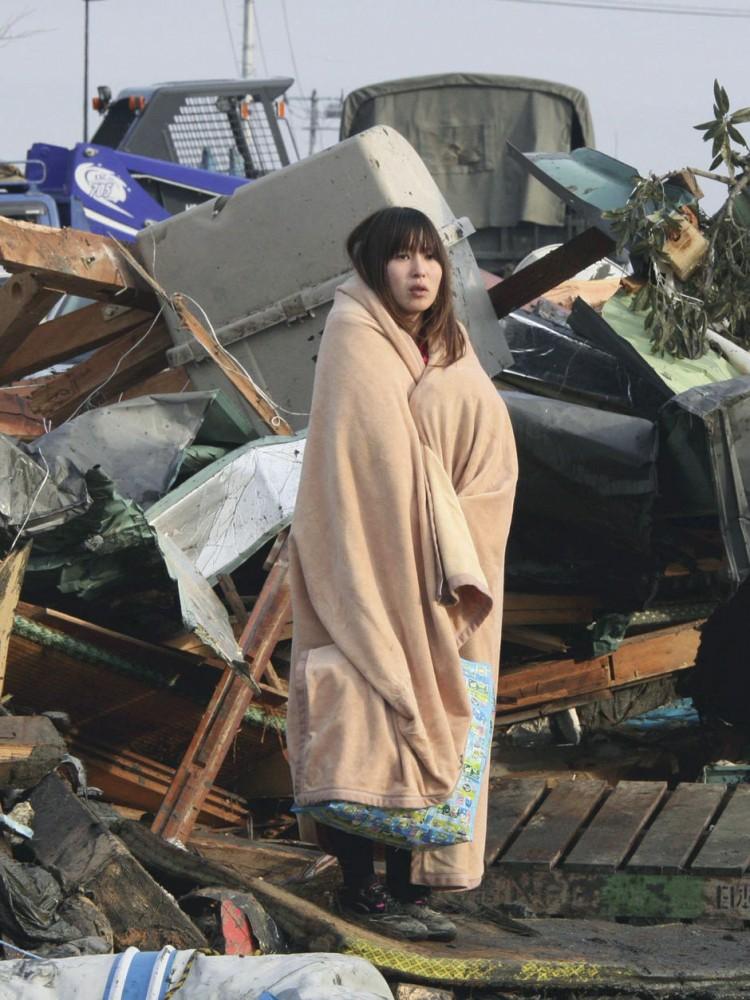Japan natural disaster hits HOME

Courtesy Photo / abc.net.au A victim of the earthquake in Japan
Mar 17, 2011
Following the earthquake that registered a magnitude of 9.0, one of the largest in Japan’s history, Japanese Prime Minister Naoto Kan has called the situation and its aftermath the biggest crisis in Japan’s post-war history, and in the middle of it all are three Grand Valley State Universitystudents
Mark Schaub, executive director of the Padnos International Center, confirmed that there are three students studying abroad in Japan through the PIC, and they have all been reported safe. Although Schaub did say there could be more GVSU students in Japan, they are not aware of their activities.
“Our office got information very quickly from the host campuses of the three students, informing us of the current situation in Japan and their particular campus,” Schaub said. “And we have of course been monitoring the situation closely through a variety of sources.”
The three students are studying across the country in univerisities in Tokyo, Osaka and Hikone. The names and contact information of the three students have not been released because written consent by the students is required.
Although many may have trouble contacting the students in Japan, Schaub did say GVSU can assist the students and Japan in various ways.
“Students can help Japan by donating to reputable relief agencies and helping any student organizations that may be helping in that regard,” Schaub said.
An earthquake, which struck last Friday on the country’s northeast side, triggered tsunami waves that engulfed much of the coastal regions. The death toll following both the quake and the tsunami is estimated at 3,373 people and growing.
On top of these natural disasters, Japan may also face the world’s most serious nuclear accident since the Chernobyl disaster in 1986. The Fukushima Daiichi nuclear power station has had problems with four of its reactors and has seen temperatures rise in two. Prime Minister Kan urged people within 18 miles of the plant to remain indoors.
Bill Downey, communication representative for the Cook Nuclear Plant located in Bridgman, Mich., said he has sympathy people of Japan and the workers at the plant.
“Like everyone else in the country, we definitely feel for the Japanese people,” Downey said. “Wow, that’s a lot to deal with. I can only imagine what they are going through. This is a one-two punch. Not only was it a tremendous earthquake, but then the tsunami that followed knocked out the diesel generators and other support equipment.”
Downey said the support equipment is critical in supplying the cooling water to the reactor. If the reactor does not get cooled, it could cause a complete melt down. Total destruction of the containment structure, which houses the reactor, would be the worst case scenario.
It is this situation in Japan that causes people across the country to start questioning their local nuclear power plants. The Cook plant, located in Michigan’s southwest corner on Lake Michigan, is not far from GVSU. Downey said the Cook plant is well prepared for any situation due to worker training and extensive drills.
“We make the health and safety of the public our number one priority,” Downey said. “I have to commend the Japanese workers for what they have done. They have gone to great lengths in these circumstances to try and keep this situation under control. I’m sure they are relying on their training.”
Likewise, GVSU President Thomas Haas said his feelings and prayers will go out to the people of Japan. For Haas, this situation affects him on a personal level.
“It hits close to home when my son was stationed in Okinawa,” Haas said. “I had a young lady who lived with us as an exchange student some years ago. She’s a math teacher now in Niigata, which is just on the other side of the coast where the earthquake took place.”
When it comes to how GVSU has responded to this situation, Haas said whenever these circumstances occur, GVSU responds very appropriately.
“I’m pleased with the leadership of Dr. Schaub, and the Padnos International Center in responding very quickly in communicating with our students,” Haas said.
Schaub said following this crisis, little has changed at this time in terms of safety, but the issue will be discussed by GVSU’s International Crisis/Safety Team in their upcoming April meeting.
As for the faculty led study abroad trip in Japan for this spring and summer, the program did not get enough applications to go. Although Schaub did say other programs not through GVSU will likely still make the trip.
“Natural disasters happen in every part of the world, including here in West Michigan,” Schaub said. “The best thing to do is always be as prepared as possible and to be aware of your surroundings.”

























